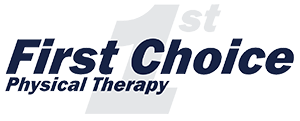Quality of life is different than just the absence of disease or pain. Quality of life means your body isn’t a barrier but a tool. Quality of life means you can keep up with your family. Quality of life means cleaning your house doesn’t force you into bed for the next few days. Quality of life means you don’t give up activities which make you happy.
Quality of Life Matters
Physical Therapy at its best is an individualized journey creating a staircase between where you are now and your best quality of life. Do you want to play with your grandkids on the floor? Let’s build the flexibility and strength necessary to accomplish that transfer without losing your balance. Do you want to run? Let’s make sure you have the shock absorption in the ankle and the stability at your hips to keep painful strain out of your knee. Do you want to work in the yard? Let’s work on loading the hips for strong movements while keeping your back safe from excessive twisting or bending.
You may laugh when we pull out frying pans, hammers, marbles, or mazes for our treatments, but our world is 3-dimentional and we need to prepare you for it. Inspiration can come from any human movement: sports, dance, martial arts, picking up toddlers, or hanging ornaments on a Christmas tree. We believe as we build back up powerful, fluid movement, we build back up a life. Is it time to start building back up yours?

What We Treat
Not sure why that joint started bugging you, but it’s been over 3 weeks and that pain is not going away? Our exam includes selective loading of each involved tissue to find the source of the pain and movement analysis to find the cause of the pain. Once identified, we can promote healing and prevent those tissues from getting injured in the future.
We specialize in post-accident rehab no matter how short or long ago the trauma was. Let’s talk about the typical changes we see in a body which is trying to protect itself and how to coax the body back into coordinated, pain-free core stability and movement.
You may think that your pain can’t be helped because you have “bad joints.” But research shows that degenerative changes, including bone-on-bone arthritis, rotator cuff tears, meniscus tears, and disc bulges, are super common in people without pain. What’s the difference between those who hurt and those who don’t? Let’s figure that out in your case. You could have more control over your “bad joints” than you realize.
Pain that lasts more than 6 months becomes a problem of its own and threatens to take over a life. Although stories can get long and complicated, there is hope for a better future. Our staff has specialized training in chronic pain management. Our approach may look different than what you have tried in the past, but it is supported by the latest research, neuroscience, and superior results.
Maybe pain isn’t the main thing holding you back. Whether your body went downhill slowly, or you are recovering from a major life event, there are many approaches to make you more stable and stronger.
Whether you are suffering from episodic dizzy spells or persistent dizziness, there are rehab techniques to help. Our evaluation can distinguish between the different sources of dizziness and guides us towards the most appropriate treatment approach.
Multiple Sclerosis, Parkinson’s Disease, stroke or other similar conditions can make movement so difficult. We build what you have and work out strategies to compensate for what you’ve lost. Either way, we want you to keep your best possible quality of life.
Although we treat primarily adults, we have enjoyed treating a number of very young children with club foot successfully. We love to use play and fun environments to promote proper movement and flexibility while the little guys are just having a great time.
Even if you don’t fit into one of the above categories, just call and ask if we can treat whatever you are struggling with. We’ll honestly answer if you would be best served at a different specialty clinic, but many conditions not yet described follow the same principals of healing and biomechanics that we can apply uniquely in your case. For example, we successfully treat TMJ pain, tension headaches, nerve entrapments, hand injuries, and many other diagnoses. Pelvic floor rehab and lymphedema require specialized tools which we don’t have at our clinic.
Insurance
We accept Medicare and most PPOs. Unfortunately, we do not accept HMOs. For any insurance or coverage questions, please contact our office and ask for Jennifer.
